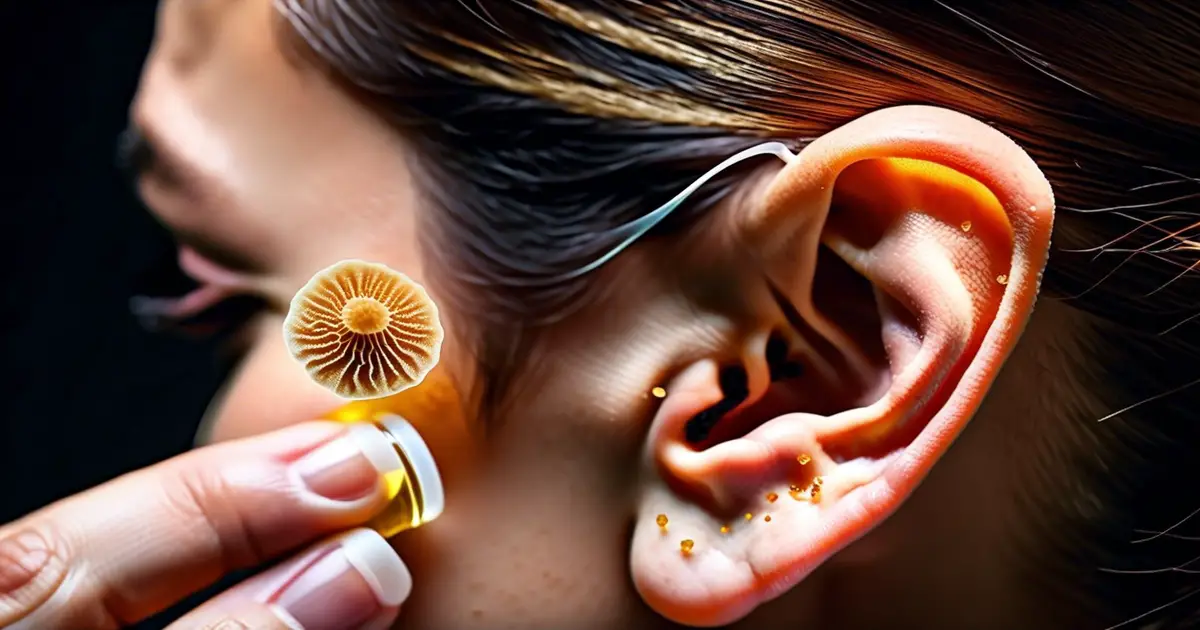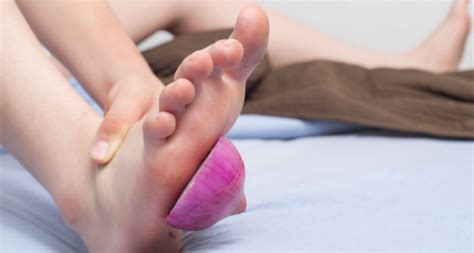- Understanding Fungal Ear Infections
- Symptoms of Fungus in the Ear
- Risk Factors and Causes of Fungal Ear Infections
- Home Remedies for Ear Fungal Infections
- Natural Remedies for Fungal Ear Infections
- Prevention and Coping Strategies for Fungal Ear Infections
- Diagnosis and Treatment of Fungal Ear Infections
- Summary
- Frequently Asked Questions
- What are the common symptoms of a fungal ear infection?
- How can I prevent fungal ear infections?
- Are there effective home remedies for treating fungal ear infections?
- Can natural remedies be used to alleviate symptoms of fungal ear infections?
- How are fungal ear infections diagnosed and treated by medical professionals?
Unravel the mysteries of fungal ear infections with effective home remedies. Natural solutions have been trusted to combat ear pain from ancient times. Dive into the past and discover how our ancestors tackled pesky issues without modern medicine. Explore a treasure trove of holistic approaches that can offer relief from the nagging symptoms. Let’s delve into the world of fungal ear infection home remedies and unlock the secrets to soothing your ears naturally.
Understanding Fungal Ear Infections
Symptoms of Fungal Ear Infections

Fungal ear infections can cause symptoms like itching, pain, discharge, inflammation, and even hearing loss. The discomfort is often accompanied by a feeling of fullness in the ear due to inflammation. If you notice any signs of ear fungus affecting the outer ear, it’s crucial to address them promptly.
Fungal infections in the ear canal are typically triggered by moisture buildup, which creates an ideal environment for fungi to thrive. These types of outer ear infections can be exacerbated by factors like swimming or living in humid climates. To prevent fungal ear infections, avoid inserting objects into your ears and ensure they stay dry.
Fungal Ear Infection Home Remedies
- Vinegar Solution: Mix equal parts white vinegar and rubbing alcohol to create a solution that helps restore the natural pH balance in your ears.
- Garlic Oil Drops: Garlic has natural antifungal properties; warm garlic oil drops can help combat fungal growth in outer ear infections.
- Tea Tree Oil: Diluted tea tree oil applied with a cotton ball can alleviate symptoms and fight off fungi effectively.
Pros:
- Gentle on the ears
- Easy to prepare at home
Cons:
- May take time to show results
Symptoms of Fungus in the Ear

Common Signs
Itchy ears, redness, and swelling in the ear canal are common symptoms of ear fungus. Discharge from the ear, often thick and yellowish, is a typical sign of an infected ear. Some may experience pain or discomfort in the affected ear due to fungus growth.
- Itchy ears
- Redness and swelling
- Thick yellow discharge
Other Indications
Symptoms like hearing loss can occur with certain fungal infections. Skin conditions can affect the outer ear canal leading to discomfort.
- Hearing loss may happen.
- Skin conditions affect outer ear.
Risk Factors and Causes of Fungal Ear Infections
Moisture and Humidity
Excess moisture in the ear can lead to fungal growth. This often occurs due to activities like swimming, leading to ear infection, or living in humid regions. When water gets trapped in the ear canal, it creates a perfect breeding ground for fungi.
Frequent exposure to water, whether from swimming or excessive sweating, can increase the likelihood of developing a fungal ear infection. The warm and damp environment inside the ear provides an ideal setting for fungi to thrive and cause an infection.
Weakened Immune Systems
Individuals with weakened immune systems are at higher risk of fungal ear infections. Conditions such as diabetes can compromise the body’s ability to fight off infections, making them more susceptible to fungal growth in the ears. People with compromised immune systems should take extra precautions to prevent these types of infections.

Home Remedies for Ear Fungal Infections
Warm Compresses
Applying warm compresses to the affected ear is a simple yet effective way to ease pain and reduce inflammation. The warmth can help improve blood circulation, promoting faster healing of the infection. To create a warm compress, soak a clean cloth in warm water, wring out excess water, and gently place it against the ear for about 15-20 minutes.
Using over-the-counter antifungal eardrops is another helpful home remedy for fungal ear infections. These drops contain active ingredients that target the fungus causing the infection while providing relief from symptoms like itching and discomfort. Follow the instructions on the packaging carefully when applying these drops to ensure proper dosage and effectiveness.
Vinegar and Water Solution
Cleaning your ears gently with a mixture of vinegar and water can rebalance pH levels in the ear canal, creating an environment less conducive to fungal growth. Mix equal parts of white vinegar and distilled water, soak a cotton ball in this solution, tilt your head sideways, squeeze a few drops into your ear canal, let it sit for a few minutes before draining.
- Pros:
- Cost-effective
- Easy to do at home
Natural Remedies for Fungal Ear Infections
Tea Tree Oil
Tea tree oil, known for its antifungal properties, can be a potent remedy when diluted with a carrier oil. Applying this mixture to the affected ear can help combat fungal infections effectively. Moreover, tea tree oil is gentle on the skin and may provide relief from itching and irritation caused by the infection.
A simple yet effective home remedy involves combining a few drops of tea tree oil with olive or coconut oil before applying it to the ear canal using a cotton swab. This method harnesses the natural healing power of tea tree oil to fight off fungi causing discomfort in your ears.
Garlic Oil
Garlic’s antimicrobial properties make garlic oil another beneficial option for treating fungal ear infections at home. By creating an unfavorable environment for fungal growth, garlic oil helps eliminate the infection while soothing any inflammation or pain in the ear canal. You can easily prepare garlic-infused oil by mixing crushed garlic cloves with warm olive or coconut oil and letting it sit for some time before straining out the solids.
- Pros:
- Natural and safe alternative to topical medications
- Easy to prepare at home using common kitchen ingredients

Prevention and Coping Strategies for Fungal Ear Infections
Keeping Ears Dry
To prevent fungal ear infections, it’s crucial to keep your ears dry. After swimming or showering, use a hairdryer on low heat to dry the ears thoroughly. Moisture creates an ideal environment for fungal growth.
Using a hairdryer can help eliminate excess moisture in the ear canal, reducing the risk of fungal infections. By keeping your ears dry, you are creating an inhospitable environment for fungi to thrive.
Avoiding Foreign Objects
Avoid inserting objects like cotton swabs into your ears as they can damage the delicate skin inside, leading to potential fungal growth. Instead of cleaning with swabs, let the ear naturally expel wax buildup by itself over time.
Inserting foreign objects into the ear canal can disrupt its natural cleaning process and push wax deeper inside. This disruption may create an environment conducive to fungal growth and ear infection due to trapped moisture.
Diagnosis and Treatment of Fungal Ear Infections
Diagnosing Fungal Ear Infections
To diagnose a fungal ear infection, a healthcare professional carefully examines the ear canals for any signs of infection. They may also take a swab from the ear to send it for laboratory testing. This helps determine the specific type of fungus causing the infection.
It’s crucial to consult with a doctor or an ENT specialist if you suspect a fungal ear infection. Only through proper diagnosis can an effective treatment plan be put in place, ensuring that the infection is accurately identified and treated promptly.
Treating Fungal Ear Infections
Treatment for fungal ear infections typically involves using antifungal eardrops or oral medications prescribed by a physician. The severity of the infection will determine whether eardrops alone are sufficient or if oral medication is necessary.
- Pros:
- Effective in eradicating fungal infections
- Can provide relief from symptoms like pain and itching
- Cons:
- May require multiple weeks of treatment
- Some medications may have side effects
Completing the full course of treatment is essential to completely eliminate the fungal infection and prevent its recurrence.
Summary
You now have a comprehensive understanding of fungal ear infections, from their symptoms and causes to various home and natural remedies. Remember, prevention is key, so be mindful of risk factors like water exposure and ear infection. Incorporating preventive measures into your routine can significantly reduce the likelihood of developing a fungal ear infection. If you suspect an ear infection, seek prompt medical attention for proper diagnosis and treatment. By following these strategies and being proactive about your ear health, you can effectively manage and prevent fungal ear infections. Stay informed, stay vigilant, and prioritize your well-being.
Frequently Asked Questions
What are the common symptoms of a fungal ear infection?
Fungal ear infections may cause symptoms like itching, redness, swelling, discharge with an unusual odor, hearing loss, and discomfort. If you experience any of these signs, consult a healthcare provider for proper diagnosis and treatment.
How can I prevent fungal ear infections?
To prevent fungal ear infections, keep your ears dry after swimming or bathing, avoid inserting objects into your ears that can damage the skin lining, and refrain from using cotton swabs excessively. Seek prompt treatment for any underlying conditions, such as ear infection, that weaken your immune system.
Are there effective home remedies for treating itchy ears caused by fungal ear infections?
Some effective home remedies for fungal ear infections include using diluted white vinegar or hydrogen peroxide to help restore the natural pH balance in the ears. However, it is crucial to consult a healthcare professional before trying any home remedies to ensure they are safe and appropriate for your condition.
Can natural remedies with antibacterial properties be used to alleviate symptoms of fungal ear infections?
Natural remedies like garlic oil drops or tea tree oil may help relieve symptoms associated with fungal ear infections due to their antifungal properties. Remember to consult with a healthcare provider before using natural remedies as improper use could worsen the condition.
How are fungal ear infections diagnosed and treated by doctors?
Healthcare providers diagnose fungal ear infections through physical examination and possibly by taking a sample from the affected area for laboratory testing. Treatment typically involves antifungal eardrops or oral medications prescribed based on the severity of the infection.











